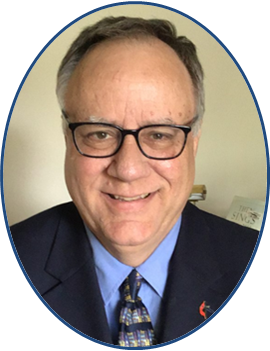Observations from a self-professed ‘old white guy’
By Andrew Kissell

I regularly hear things from my White brothers like, “Why do we have to rehash history? Why don’t we just start doing something about racism?” “Why do we need to share our stories or even talk about it at all?” and, “What can I do, I’m not responsible?” Well, the first question has several answers beginning with, “We’re condemned to repeat it if we don’t learn from it” (George Santayana), or, for engineers like me, “You need to define the problem before you begin to fix it,” and “I need to see the whole picture with all the pieces of the puzzle in place.”
Recently, Bishop Sharma Lewis asked us to tell our stories. The reason we need to tell our own stories is to begin a dialog that will lead to healing and reconciliation.
Just over four years ago when I became a new Conference President of United Methodist Men (UMM) and Bishop Lewis became leader of the Virginia Conference, several of us on the UMM Cabinet visited Glen Allen to meet with her. After a productive conversation on several important matters, Bishop Lewis recommended that we develop a mentoring program for the men (https://doc.vaumc.org/UMMen/TheWesleyChallengeMentorLeaderGuide.pdf). She also asked us to ensure that “our leadership is representative of our membership.” In Virginia, Blacks make up about 20 percent of the population. In the Virginia Conference they constitute about 10 percent.
I serve in a largely urban district with a few Black churches and even fewer diverse congregations. I attend a church that is predominantly white as is the case for most whites, not just in our conference, but most others. Church remains the most segregated institution in the land. So where do we start to recruit servant leaders, keeping diversity in mind? And how do I, as an old white guy, avoid behaving like a patriarch yet still become an ally in dismantling institutional racism in both our church and our communities? For the UMM, recruiting and equipping qualified and representative servant leaders often means going outside of our normal sphere of influence when vacancies come up.
“For God did not appoint us to suffer wrath but to receive salvation through our Lord Jesus Christ. He died for us so that…we may live together with him.Therefore encourage one another and build each other up, just as in fact you are doing.”
–1 Thessalonians 5:9-11 (NIV)
We must be mentors and nurturers. I am proud to have had the privilege to mentor and nurture Albert Weal, our new conference UMM president, and I have gained a lot from him as well. Last year, Albert was the officer that suggested that rather than appeal for UMM funds during the pandemic, that we talk about our ministries in a series of webinars that still continue today. Rarely are we completely prepared for the new challenges ahead that God calls us into. As you’ve heard it said, God doesn’t call the equipped, he equips the called- and we are all here to help!
We build the kingdom by encouraging each other just as Jesus and the apostle Paul did. It takes a nurturing disciple to both mentor and, “…make disciples of all nations…” Fortunately, Jesus assured us, “… I am with you always, to the end of the age.”
–Matthew 28: 19-20 (NIV)
